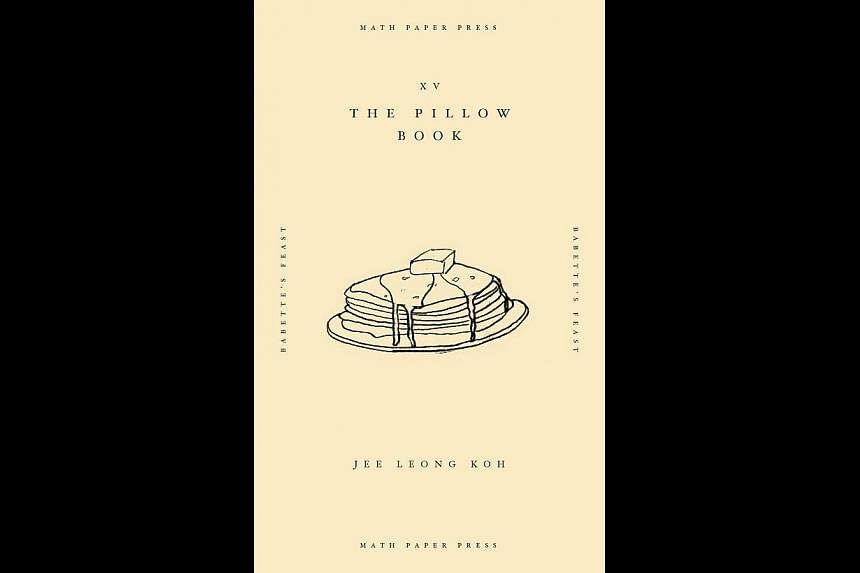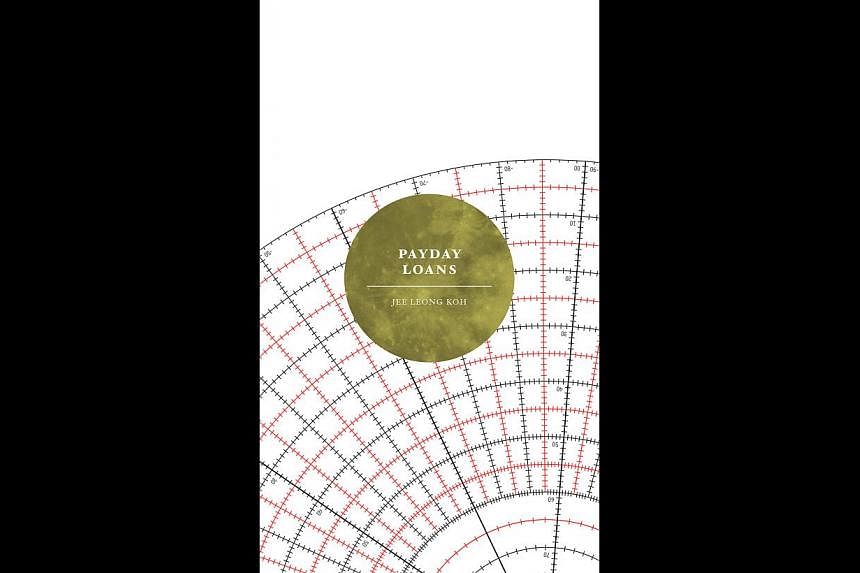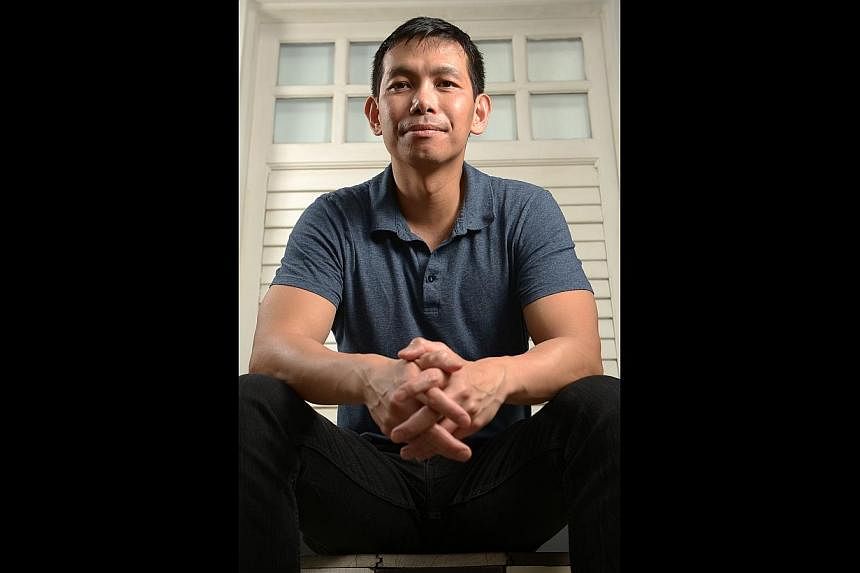Shortlisted for the Singapore Literature Prize for English poetry last November, Jee Leong Koh says he ironically found his voice only after leaving the country in 2003 to study in the United States.
He lives in Manhattan with his partner, teaching in a private school, but continues to engage with Singapore in his critically acclaimed verse.
Take the collection Steep Tea, to be published in July by UK publisher Carcanet Press. It is partly Koh's response to women poets such as Ireland's Eavan Boland or American Rachael Briggs, who co-wrote the titular poem as a call-and-response Japanese "renga" form.
The collection also includes Koh's reactions and thoughts on Singaporean icons such as the old KTM Railway Station at Tanjong Pagar and poet Lee Tzu Pheng's well-known and much-discussed poem about life here, My Country And My People.
"When writing my poem Recognition, I found myself trying to find the details of my own life in her life and writings," says Koh, 45, who came to poetry through the writings of Philip Larkin and other English poets and did his degree in English literature at Oxford University. Though he had read and loved the works of Singapore-born Boey Kim Cheng many years ago, he encountered Lee's work only recently.
He says he felt an instant connection to her poem and plans to send her a copy of Steep Tea.
"I grew a bean plant as a school science project. Did she? I reared a chick in my then-new housing estate. Did she? Nothing is certain until the final comparison, that I have written poems, just as she did. I am less interested in the details of her personal life, than in the fact that we both write poems, that we both try to make sense of ourselves and our country through our imagination."
Another long-established trope of Singapore life, the tendency for students to copy and regurgitate model answers and essays, is dealt with in Attribution. He recalls being caught out for plagiarism while in Oxford because he took sentences from a book of criticism without citing his sources. Luckily, his tutor's punishment was merely the eye-opening task of writing a second essay, on the poet John Donne, without relying on secondary sources.
"Plagiarism was rife in school when I was studying in Singapore," says the former student of Radin Mas Primary School and Raffles Institution. "My classmates would copy one another's lab reports. We were given model history essays to memorise and regurgitate for the GCE-O level examinations. When I read a beautiful sentence about Ben Jonson's verse, I copied it into my essay, knowing that its expression was perfect. I should have attributed it, of course, but then I would not have thought of attributing a graceful expression or pungent idiom that I copied into my Chinese-language compositions at school."
After university, he taught for eight years at Choa Chu Kang Secondary School, but found the pressures of teaching left him no time to write or write well, especially as he was promoted to a vice-principal's post.
Back in Singapore for Chinese New Year last month, he threw out all the poems he wrote during this time, calling them "bloodless".
Later works were more provocative, with sexual themes and playful raunch. Koh in fact made news in 2006 when a poem April 13, Wednesday, with homosexual themes, was banned from being read aloud at ContraDiction, a gay pride event in Singapore. Organisers passed around copies of the verse instead and it is collected in Payday Loans, published first in 2007 by small American imprint Poets Wear Prada press and last year by Math Paper Press. The collection was written in the month before he graduated with his master's of fine arts from Sarah Lawrence College.
Another collection, The Pillow Book (2012, Math Paper Press), was shortlisted last November for the biennial Singapore Literature Prize in the English poetry category. The prize was won jointly by Joshua Ip (Sonnets From The Singlish, Math Paper Press) and Yong Shu Hoong (The Viewing Party, Ethos Books).
Recognition has been intermittent for Koh. Two other collections, Equal To The Earth (2009) and Seven Studies For A Self-Portrait (2011), were self- published. Though individual poems in each were accepted by journals, no publisher seemed interested in bringing out a body of work.
It was a far cry from his first success at age 15, when a poem he wrote on the rain was broadcast on Singapore radio and netted him a cheque for $20.
"To have a response from the world, that we think this is worth buying and broadcasting - I thought: 'I have to keep doing this,'" he says with a laugh.
His parents were not great fans of poetry - his father is an electrician and his mother a gas station attendant-turned-housewife - but a green, cloth-bound book of English poetry at home led him to discover the writings of war poet Wilfred Owen.
Next came a volume of 11 British poets, which introduced Koh to sardonic wordsmith Larkin and sealed in him the love of poetry.
"Being shy in real life, writing is kind of a substitute for me. I can say what I don't dare say in real life," he says.
Interestingly, the editor of that book, British poet Michael Schmidt, is also the founder of literary journal PN Review, which first published Koh's poems from The Pillow Book, and also founded Carcanet Press, which is bringing out Steep Tea.
Koh, in turn, has been passionate about spreading the love of poetry, notably since 2013, when he met poets such as Christine Chia while back in Singapore for a holiday and started the website Singapore Poetry to introduce writing from the country to people in America.
Last year, he co-organised the inaugural Singapore Literature Festival in New York, with readings from more than a dozen Singapore writers. An offshoot of that is an ongoing monthly reading featuring Singaporean and American voices at various locations in New York.
"I find it extremely satisfying to bring writers and readers together. It is very special when Singapore writing reaches out beyond our shores, not because we need external validation, but also because our local writing has more than local resonance," he says.
Payday Loans ($16, Math Paper Press); The Pillow Book ($10, Math Paper Press); Seven Studies For A Self-Portrait ($18, Bench Press) and Equal To The Earth ($18, Bench Press) by Jee Leong Koh are available at Books Actually.
Steep Tea by Jee Leong Koh will be published by Carcanet Press in July.





